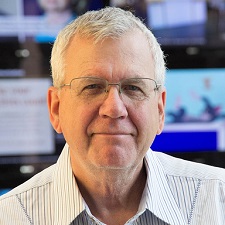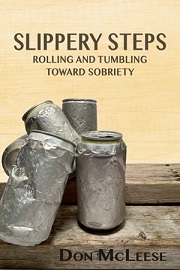For McLeese, Alcoholics Anonymous was incredibly instrumental in helping him through his recovery process. Part of the reason he told his story was for others going through the same issues to know what to expect when participating in the program. “It’s just more a helping hand and empathy… Within AA, you were encouraged to not judge people by how they dressed, how they talked, what they’d been through, you know, to recognize that we’re all there because we had some sort of drinking problem, some sort of living problem, and the connection we make as part of the human condition… that we’re looking for something outside of ourselves to complete ourselves, to make ourselves whole, and just the sharing… I think that until one goes to AA, it’s anonymous, you’re not supposed to talk about it. It’s a secret society or somewhat and so most people don’t really know anything more about it than what I knew… this is kind of my way of taking somebody who was in the same position that I was and saying, ‘It’s ok, let me bring [you] in. Let me show you what it’s like. You can decide for yourself whether you want to hang around or not. Nobody is going to make you do anything or say anything or believe anything or whatever, but you might find some answers here. I did.'”

I really think that as human beings we are all in some way broken. We have this emptiness inside. I spent a lot of my time…trying to fill that hole with alcohol and not realizing that I was just digging the hole deeper [and] that every drink just contributed to filling that hole.


Please release me of the bondage of myself.

Podcast: Play in new window | Download
Subscribe: RSS

Want to join the discussion?
Feel free to contribute!